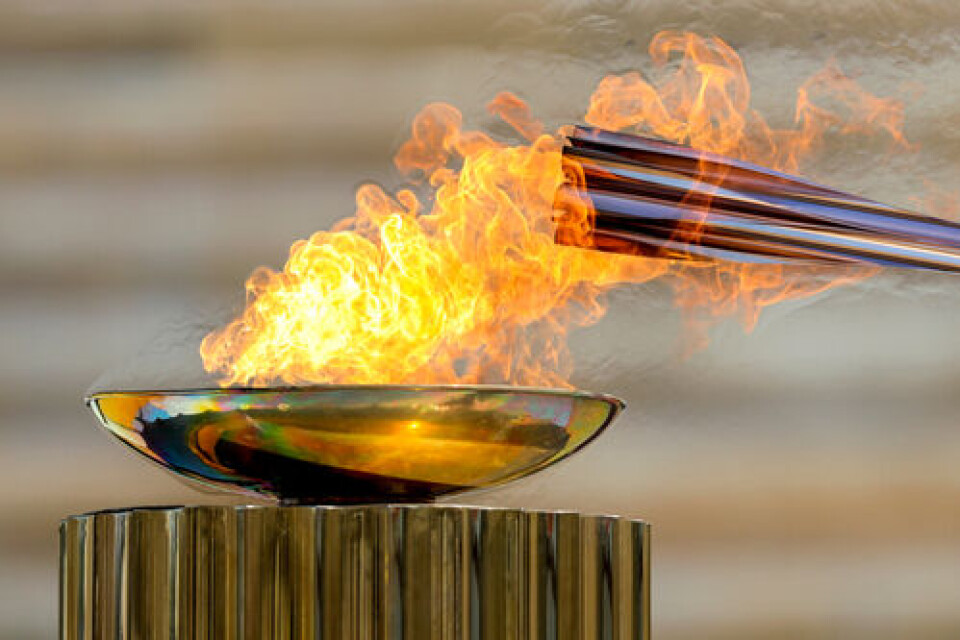-
Britons are the largest foreign community of second-home owners in Nouvelle Aquitaine
See which other departments in the region are popular with British nationals
-
Travellers risk extra costs under new Eurotunnel ticket rule
Some fare options are less flexible and less forgiving of lateness
-
May will be difficult month for train travel in France, warns minister
Two major train unions are threatening to strike and are ‘not willing to negotiate’, he says
Paris 2024: Marseille the first city to welcome the Olympic Flame
The city will kick off the Flame’s three-month journey to Paris and has been chosen partly because of its ancient links to Greece

The famous Olympic Flame is to begin its journey through France in the southern city of Marseille, Bouches-du-Rhône, it has been announced, before continuing on its route towards Paris.
The Organising Committee for the Olympic and Paralympic Games in Paris announced the news saying: “After having been lit in Greece at the ancient site of Olympia, the Olympic Flame will make its way to Marseille on board the Belem, a majestic three-mast ship.
“It will kick off a huge public festival on the quai of the city.”
As for all Games since 1936, the Flame will be lit at the ancient site of the temple of Hera in Olympia, Greece. The Flame will then make its way to Paris over the course of three months, beginning in Marseille, before being taken to light the Olympic Flame during the Opening Ceremony to start the Games officially.
The Provence-Alpes-Côte d'Azur city has been chosen partly because of its historic links to Greece. The city’s mayor, Benoît Payan, told FranceInfo: “Marseille was founded by the Greeks from Phocaea, 2,600 years ago.
“By requesting that we welcome the Flame along our waterways, we wanted to reclaim this major history of sharing, brotherhood, diversity and mutual support.”
Strong sporting culture in Marseille
Because of its ancient links, Marseille is often called “the oldest city in France”.
Marseille was also chosen because of its “secular sporting culture”, the mayor said. As well as its ancient stadium ruins, the city also has a Marina, and a football Vélodrome. These will host sailing and football events during the Games respectively.
President of Paris 2024, Tony Estanguet, said: “The central place that sport holds in the city, and in the heart of its residents, was a major determining factor, as was the city’s major role in the entire Paris 2024 project.
“The city is in the Games’ image: popular, festive, welcoming, and multicultural. In Spring 2024, it won’t just be the Flame that will arrive in Marseille; the Games will be coming back, 100 years after their last summer event, to France!”
The Olympic Flame has previously been transported by a Native American canoe, camel, Concorde (2000), and even a space shuttle (1996 and 2000).
Yet, the cost of the three-month journey across France has been judged as excessive by some regions. The Flame will be carried by many relay racers, who will follow an as-yet secret route, which will only be revealed in May 2024.
The Organising Committee for the Olympic and Paralympic Games has said that its route will enable regions to showcase themselves and show off their heritage and French savoir-faire.
However, the route may not be without problems. In 2008, the passage of the Olympic Flame for the 2008 Beijing Summer Olympics did not always go smoothly. It was most notably affected by pro-Tibet protesters, who caused an interruption that forced authorities to temporarily put out the Flame for safety.
Related articles
Paris 2024 Olympics to seek English-speaking volunteers
New Paris 2024 Olympic Games logo revealed
Who is woman in Paris 2024 Olympics logo?
























